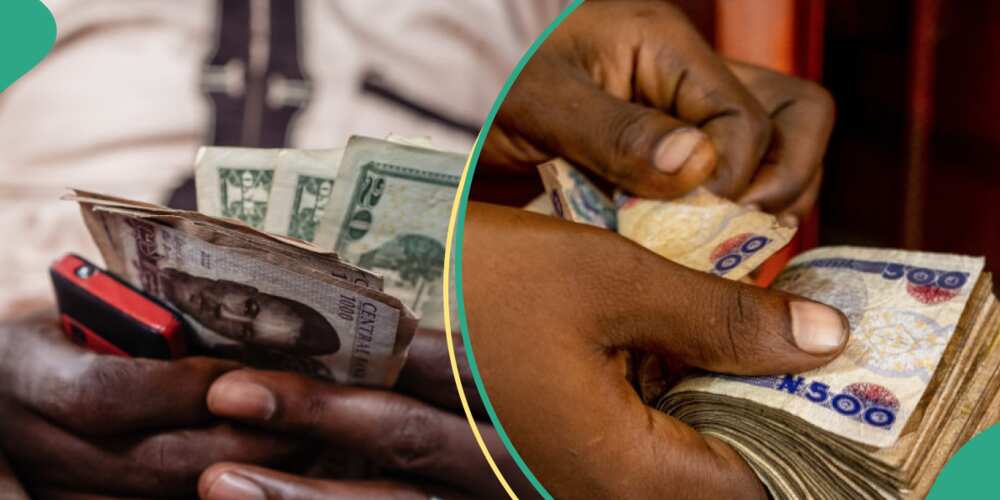…as US dollar’s share in global reserves stands at 54% in Q4’23
The Central Bank of Nigeria (CBN) may take a cue from Saudi Arabia which recently opted for multiple currencies in international trade in order to save the local currency, the naira, which has received serious beating in recent times, the Nigerian Observer’s synthesis of expert opinions has shown.
The naira has seen a significant depreciation in value since its free float from about N460/$ in June 2023 to N1585.53/$ on June 21, 2024 based on the data provided by the FMDQ Exchange. The sharp depreciation in the value of the naira exposed multinationals in the country to huge forex losses, particularly MTN Nigeria, Nestle, among others, that posted between N100 billion and N137 billion losses last year.
It should be recalled that recently, Saudi Arabia, OPEC’s largest crude oil exporter, opted to conduct its international trade in multiple currencies instead of the sole reliance on the US dollar. Although, there was no official written agreement between the US and Saudi Arabia for the latter to sell its oil only in US dollars, as well as no official statement has been made by the Saudi authorities concerning the cancellation of such agreement, what is incontrovertible is that in practice, crude oil sales have been conducted mainly in US dollars, or petrodollar, and the Saudi authorities have not made any denial since the news began to spread mid-June.
What lends credence to the end of the unwritten agreement was an announcement made by BRICS News on its X handle on June 12, 2024, saying “Saudi Arabia’s 50-year-old petrodollar agreement with the United States has expired, with no new agreement in place. Saudi Arabia will now sell oil in multiple currencies, including the Chinese RMB, Euros, Yen, and Yuan, instead of exclusively in US dollars.
This move has been interpreted by analysts as the beginning of the decline of the dollar dominance in international business transactions, although the impact may not be felt immediately due to the illiquidity of rival currencies.
Financial experts that spoke with The Atlantic Council, a think tank that focuses on promoting constructive leadership and international engagements, as well as Business Insider, are unanimous that this latest development will usher in an international environment that is made up of many functional currencies, such as the US dollar, euro, yen, renminbi, among others.
“To encourage Riyadh’s use of the dollar as the medium of exchange for its oil sales, (and thereby funnel those dollars back into Treasury bond markets to help finance US fiscal deficits), Washington promised to supply military equipment to Saudi Arabia and protect its national security. Despite the tumult and instability in the United States at that time, the deal showed that it retained the power to set the international agenda.
“In addition to keeping demand for the dollar stable, the agreement promoted its use in oil and commodities trading, while creating a steady source of demand for US Treasuries. This helped to strengthen the dollar’s position as the world’s key reserve, financing and transactional currency,” The Atlantic Council said.
The latest move by Saudi Arabia is bound to challenge the primacy role of the dollar which is now seen ebbing after 50 years.
“In such a world, the dollar would remain prominent but without its outsized clout, complemented by currencies such as the Chinese renminbi, the euro, and the Japanese yen in a way that’s commensurate with the international footprint of their economies,” Business Insider posited.
According to Statista, a Germany based research outfit, the US dollar accounted for 54.22 percent of the global foreign exchange reserves as of December 2023. The euro accounted for 18.55 percent; Japanese Yen, 5.09 percent; Pound Sterling, 4.49 percent; Canadian dollar, 2.39 percent; Chinese renminbi, 2.12 percent; Australian dollar, 1.96 percent among others.
To stabilise the naira, Nigeria flirted with the idea of diversifying the nation’s foreign reserves in 2011 with the inclusion of Chinese renminbi, when Sanusi Lamido Sanusi was the CBN governor. The agreement was firmed up in 2018, with the currency swap worth $2.5 billion, making Nigeria the third African country to sign such a deal with China.
Before Nigeria were South Africa and Egypt that signed currency swap deals worth $4.7 billion and $2.6 billion in 2015 and 2016 with China respectively. The currency swap allows Nigeria to trade with China, without a recourse to the use of US dollar, even as the renminbi equivalent of Nigeria’s foreign reserves amounted to only 4.5 percent, with plans to raise it to 10 percent.
What informed Saudi Arabia’s move was a shift in its trade direction as well as the declining share of the US economy in the global GDP. According to the Atlantic Council, the global dominant position enjoyed by the US decades ago has weakened, with its share of the global GDP declining from 40 percent in 1960 to 25 percent currently.
On the other hand, China has surpassed the US in purchasing power parity terms, and has become Saudi’s largest crude oil buyer, while the US has become less dependent on Saudi crude oil, due to the shale revolution.
Based on foreign trade data from the National Bureau of Statistics (NBS), Nigeria’s foreign trade mirrors that of Saudi Arabia in terms of direction in the sense that from 2016 to date, in both export and import segments of the nation’s foreign trade, European and Asian countries have continued to dominate the trade chart.
In Q1 2026, India and the Netherlands dominated the export chart, followed by the US, Spain and South Africa. On the import chart, China dominated the table, followed by Belgium, Netherlands, US and India.
In Q1 2024, the top export destinations for Nigeria were France, Spain, Netherlands, India and US. On the import segment, we had China, India, US, Belgium, and the Netherlands, thus giving Nigeria the opportunity to trade with euro and renmin


